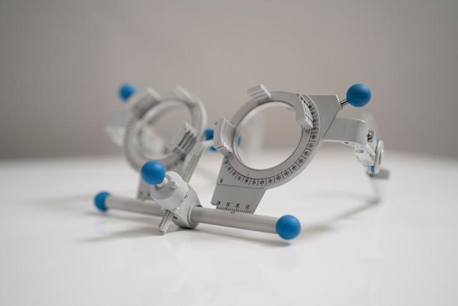Regular eye exams are essential for maintaining eye health. An optometrist or ophthalmologist evaluates your vision and checks for eye diseases during the exam. Tests like visual acuity and refraction and a comprehensive eye health exam can detect issues like nearsightedness, farsightedness, astigmatism, glaucoma, and cataracts. Early detection allows for proactive treatment, helping to preserve your vision and prevent complications. Don’t neglect your eye health—schedule regular exams to keep your eyes healthy.
Importance Of Regular Eye Exams
Regular eye exams are crucial for preventing vision loss and detecting issues early, as many eye diseases have no symptoms. They’re essential for everyone, not just those with glasses or contacts. Eye exams can also reveal underlying health problems like diabetes, high blood pressure, and high cholesterol, benefiting your vision and overall health. Early detection of glaucoma, cataracts, and macular degeneration can help prevent severe damage and maintain long-term eye health.
What To Expect During An Eye Exam
Understanding the steps of an eye exam can help reduce anxiety. The process starts with a review of your medical history, including medications and past eye issues, to tailor the exam to your needs. First, a visual acuity test checks how well you see at different distances. If needed, a refraction test determines your prescription. Next, a thorough eye health check is performed, including tonometry to measure eye pressure and a dilated exam to inspect the retina and optic nerve for conditions like glaucoma or macular degeneration. These tests are essential for early detection and maintaining eye health.
Types Of Eye Exams
Eye exams come in various types, the most common of which is a comprehensive exam that evaluates overall vision and eye health. These exams include tests like visual acuity and refraction and are recommended for people of all ages. Children often undergo early school vision screenings to detect issues like amblyopia or strabismus. Specialized exams, such as dilated eye exams for people with diabetes or OCT for those with vision changes, are used to monitor specific conditions. Understanding these exams helps ensure you get the proper care for your eye health.
Signs That You Need An Eye Exam
Recognizing the need for an eye exam is key to maintaining good vision. Symptoms like blurred or double vision, headaches, light sensitivity, or difficulty seeing at night may indicate underlying conditions such as cataracts or refractive errors. Squinting or discomfort while reading or using digital devices also signals the need for an exam. Regular check-ups are essential if you have a family history of eye diseases like glaucoma or macular degeneration. Early detection helps prevent complications and protect your vision.
Benefits Of Regular Eye Exams
Regular eye exams offer numerous benefits beyond just maintaining clear vision. Early detection of eye diseases, such as glaucoma or macular degeneration, allows timely treatment to preserve vision and prevent further deterioration. Additionally, eye exams provide personalized care, with professionals providing tailored recommendations on lenses, eye strain reduction, and UV protection based on your lifestyle. Prioritizing eye health enhances your quality of life, ensuring you can fully engage in daily activities like reading, driving, and spending time with loved ones. Clear vision fosters independence and peace of mind as you age.
Common Eye Conditions That Can Be Detected During An Eye Exam
During a comprehensive eye exam, your eye care professional can detect common conditions like refractive errors (nearsightedness, farsightedness, astigmatism), which can be corrected with glasses, contacts, or surgery. Glaucoma, marked by increased eye pressure and potential optic nerve damage, can also be identified early to prevent vision loss. Cataracts, causing cloudy vision and glare, are another condition that can be detected. Early detection allows timely intervention, helping preserve clear vision and overall eye health. Regular exams are key to managing these conditions effectively.
How Often Should You Have An Eye Exam?
The frequency of eye exams depends on age, health, and vision concerns. Most adults should have a comprehensive exam every one to two years, but those with risk factors, like a family history of eye disease or chronic conditions, may need more frequent visits. Children should have their first exam at six months, then at age three, and before starting school to detect early vision problems. Adults over 60 should schedule more frequent exams due to the increased risk of age-related conditions. Prioritizing regular eye exams is essential for maintaining optimal eye health at any age.
Finding A Qualified Eye Care Professional
Finding the right eye care professional is crucial for maintaining good vision. Decide if you need an optometrist for routine care or an ophthalmologist for medical treatment. Check their credentials, experience, and reviews. Choose someone who makes you comfortable and ensure the facility uses advanced technology. Ask questions during your visit to ensure you’re making the right choice.
Tips For Preparing For An Eye Exam
Preparing for an eye exam ensures a smooth visit. Bring a list of symptoms, your medical history, and current medications. If you wear glasses or contacts, bring them to assess your prescription. Understand your insurance coverage and potential costs to avoid surprises. Arrive early to complete paperwork and allow time for preliminary tests. If dilation is required, arrange for a ride home. By preparing in advance, you can focus on your eye health and the recommendations for maintaining your vision.
Conclusion: Taking Care Of Your Eye Health
In conclusion, regular eye exams are crucial for maintaining optimal eye health and sharp vision throughout life. These exams allow for early detection of eye conditions, enabling timely treatment. You can proactively protect your eyesight by understanding what to expect during an exam, recognizing when you need one, and knowing how often to schedule visits. Finding a qualified eye care professional and preparing for your appointment will ensure personalized care. Prioritize regular eye exams to safeguard your vision and enhance your quality of life. Schedule your next eye exam today and take the first step toward clear vision and lasting eye health.


